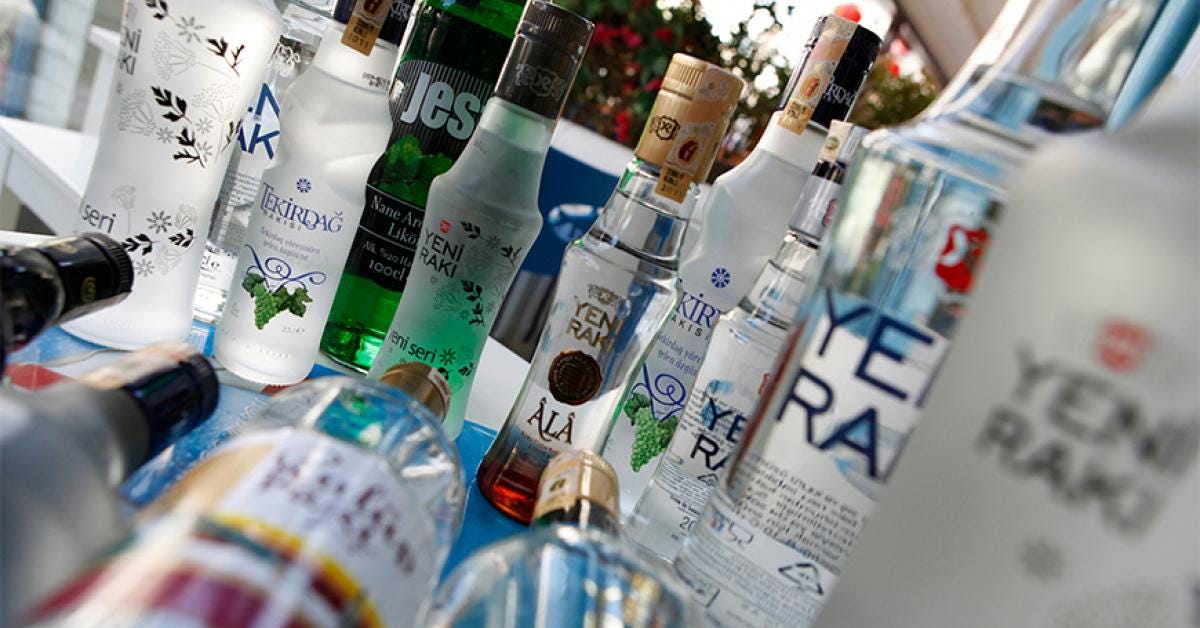L. The latest criminal trades
In the final stage of the first season, let's do an overview of international criminal flows pivoting in the region: smuggled cigarettes, cannabis, human trafficking, money laundering
Hi,
welcome back to BarBalkans, the Italian newsletter whose aim is to give a voice to the Western Balkans’ stories, on the 30th anniversary of the Yugoslav Wars.
This is the last episode of the 2020/2021 season.
I hope you will forgive me if we do not end with something a light reading, but the BarBalkans’ origins trace back to this topic.
And what better time than at the end of our first year together to know more about it?
Let’s talk about criminal trades, from the best known to the most unexpected.
We learnt that the Western Balkans always have particular characteristics.
So let’s try to understand more through a few short overviews of the different national, regional and international organized crime’s flows.
[For every chapter, you will find a link to the in-depth analysis by the Global Initiative Against Transnational Organized Crime]
Cygarette daydreams
What is the risk of not being recognized as an independent state? That international cooperation slows down.
And what happens if agreements between intelligence services are not reached at least at regional level? That borders become porous.
This is how the illicit international tobacco trade works, whit a prominent role played by Kosovo.
The non-recognition of Kosovo as an independent State [we talked about it in the 40th episode, “A kick to diplomacy”] prevents the country from joining international treaties and organizations, such as Interpol.
In addition, northern Kosovo is disputed with Serbia and the formation of parallel parastate structures encourages grey zones of informality.
All of this has transformed Kosovo - and in particular the north of the country - into a paradise of smuggling and counterfeiting.
Foreign cigarettes enter State borders and magically disappear. When vans and trucks leave Kosovo, local authorities cannot follow them or communicate such activities, due to the lack of relationships with foreign colleagues.
Low excise taxes on locally produced Kosovar cigarettes create incentives for smuggling to neighboring countries.
For this reason, it is estimated that Pristina loses 16 million euros a year.
Without considering the damage to the economy of all the Balkan countries, caused by the Kosovo black hole in the international control network.
Join(t) the trip
Cannabis is the most consumed, traded, seized drug in the Western Balkans. And it is also the only one produced in the region, where the branches of the international cannabis trade have their origins.
Albania is the country with the highest concentration of cannabis crops, although the downward trend began in 2016 (following greater repression by the law enforcement).
In terms of production, cannabis is sold between 1,200 and 1,400 euros per kilo, while skunk (a higher-quality hybrid variety), grown indoors, between 1,600 and 2,000 euros per kilo.
From Albania, the traffic leads west (to Italy), south (to Greece), east (to Turkey) and north (to the rest of Europe, through Kosovo, Montenegro and Serbia). Depending on the variety, it can be sold between 2,500 and 3,500 euros per kilo.
In North Macedonia, cannabis is legally allowed for therapeutic use and legalization for recreational use is under discussion [you can read more about it in the 24th episode, “Skopje, the new Amsterdam”].
There is an increase occurring in the theft of tons of cannabis from Macedonian warehouses and the smuggling into the grey market in Kosovo.
The prices are a clue: they are low in southern Kosovo, as well as in North Macedonia, and high in northern Kosovo, as much as in Serbia.
As it moves to richer markets in the Western Balkans and Europe, cannabis increases in value. This can be attributed to the risks of crossing borders, the cost of transport and the purchasing power.
The phenomenon can be seen in Serbia.
Once collected by the criminal groups of Nis, Belgrade and Novi Sad, part of the goods supplies the large local markets, where wholesale prices are between 2,000 and 2,500 euros per kilo.
But Serbia is also the Balkan country with the highest rate of cannabis seizures, over 7 tons per year.
Most of all, the seizures take place at the border crossing points with Bulgaria, Romania and Hungary, with destination central and northern Europe.
Are we human?
Since 2018, the well-established routes for fuel, cigarettes and livestock contraband have also been used for another purpose: the international smuggling of migrants.
Smugglers usually guide migrants along the Balkan route to cross Montenegro or southern Serbia, taking them to the border with Bosnia and Herzegovina.
On the Bosnian side, the solo route to the north-east of the country begins. Destination: Bihać [you can find everything you need to know about the situation of refugee camps in the 31st episode, “One and many Lipa. The shame of Europe”].
In Bosnia, migrants tend to avoid urban areas - where social tensions related to migratory flows are rising - and move across the countryside.
Destroyed and abandoned buildings in the southern part of Republika Srpska are often marked with graffiti by people who sought refuge for the night.
But traveling on foot is not the only option.
Both criminal gangs and ordinary people are increasingly involved in migrant smuggling.
For 150/200 euros per person, illegal “taxi” services bring migrants to Sarajevo. The rides are often offered in the luggage compartments.
From the capital of Bosnia and Herzegovina, most of the migrants buy a train ticket to Bihać. The authorities of the Una-Sana canton asked for the suspension of the railway line, accusing the State company of involvement with human traffic activities.
Once they reach the border with Croatia, “The Game” begins, with all its rules and violence.
Victims of human trafficking are there just to cross the Balkans. But these people end up being trapped in Bosnia and Herzegovina.
Money for nothing
And finally, there is a more hidden and subtle criminal flow that involves the Western Balkans: money laundering and corruption.
Although it is not possible to determine with certainty how much illicit money is generated in the Balkans and how much “foreign” money is laundered in the region, estimates range between 1.8 and 4.6 billion euros annually.
It is better to recall that criminal groups are able to launder money locally, or transfer it to offshore accounts, returning back “clean” to the region.
Corruption is the first way to launder money locally and also responds to criminal organizations’ needs. It is included among the fixed costs of organized crime.
Bribes to politicians and judges, to the border police for smuggling trade, or to the competent authorities for building permits.
Concerning public procurement, corruption “steals” 2 out of 7 billion euros every year in the Western Balkans.
And then, there are informal money-transfer networks.
For example, the so-called hawala system: a money-transfer system based on trust and honor, which can work in areas that lack a functional banking system.
In practice, customers use brokers based in their respective locations to send and receive money. Senders pay a small commission and receivers use a password to release the funds.
Hawala networks facilitate lower-middle money laundering, between members of criminal groups engaged in drug trafficking and migrant smuggling. It offers several advantages: the system’s competitive pricing, fast money transfers and suitability to specific cultural contexts.
It is interesting to note that, although its origins lie within Arabic communities, hawala system is not confined to the countries with a Muslim-majority population in the Western Balkans.
On the other hand, at mid-high level money laundering, banks are the protagonists.
Their range of services - deposit acceptance, loans, currency exchange, asset management - makes them attractive for transferring money overseas.
Banks have become important intermediaries for large transactions and offshore accounts, thanks to sophisticated systems for avoiding controls.
Another way to launder money and to increase the value of the assets is to invest in properties.
Money laundering through real estate is relatively easy and has the advantage to absorb large amounts of capital.
For example, almost everywhere in the Western Balkans, companies that apply for a construction permit are not obliged by law to show proof of their capital.
As prices are artificially driven up by criminals who want to launder their assets, many property markets across the region have been skewed.
And then, another practice is to invest in luxury goods, such as works of art, jewelry, cars and yachts.
This is not only a way to launder large amounts of money, but also a trick to make illegal assets go unnoticed through customs controls.
Several intelligence reports have shown that, through falsified identity documents and credit cards, luxury goods were purchased, declared and/or worn as personal items at the border.
Once the State border is crossed, the same luxury goods are exchanged again with cash, to start a new chain of criminal trade.
Pit stop. Sittin’ at the BarBalkans
We have reached the end of this piece of road.
While analyzing all the international criminal flows pivoting in the region, at our bar, the BarBalkans, we must beware of another danger: the smuggling of counterfeit spirits.
More specifically, we must pay attention to rakija, the most popular distillate of the whole region.
There are several precautions to make sure that you are drinking an original product.
Here is a practical guide:
Watch closely to the liquid. A true rakija, regardless of the fruit it is made from, is crystal clear and never cloudy.
Smell it. The smell is pungent, but not similar to varnish or nail polish.
Look at the seal. Like all the spirits on the market, the bottle must have a serial number and, when exposed to light, the seal shows a hologram with orange and blue lines.
The packaging. Counterfeit rakija does not have a guarantee stamp and often has spelling errors on the label (easier if you know the local language).
The price. A bottle that is too cheap compared to the others on the market should be a wake-up call.
For this first year, BarBalkans’ journey stops here. We will meet again soon, with brand new episodes, for the second year together.
A big hug and have a good journey!
BarBalkans is a free weekly newsletter. Behind these contents there is a lot of work undertaken. If you want to help this project to improve, I kindly ask you to consider the possibility of donating. As a gift, every second Wednesday of the monthyou will receive a podcast with an article about the dissolution of Yugoslavia.
If you want a preview, just listen to BarBalkans - Podcast. You can find it on Spreaker and Spotify! The next episode will be out on Wednesday, don’t miss it!
As always, I thank you for getting this far with me. Here you can find all the previous newsletters.
If you want to help me to make this experience grow, you can invite whoever you want to subscribe to the newsletter:
Pay attention! The first time you will receive the newsletter, it may go to spam, or to “Promotions Tab”, if you use Gmail. Just move it to “Inbox” and, on the top of the e-mail, flag the specific option to receive the next ones there.
BarBalkans is on Facebook and Instagram, while on Linktree you can find the updated archive.









